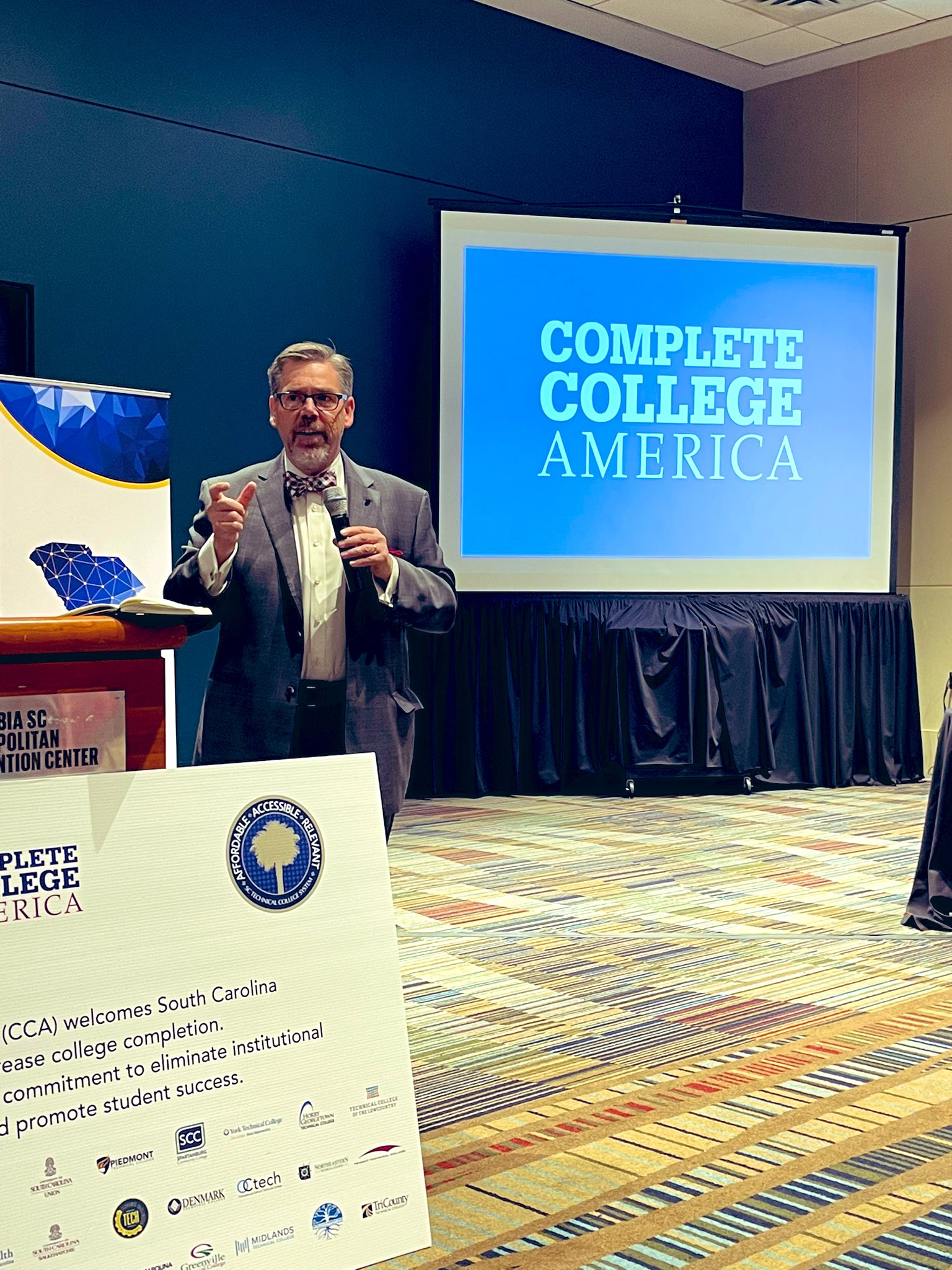COLUMBIA — More than 80 higher education stakeholders from colleges and organizations across South Carolina attended a launch event Feb. 16 to learn more about a new partner in the state’s efforts to increase college completion rates.
In October 2021, the South Carolina Commission on Higher Education, in coordination with Gov. Henry McMaster, announced that South Carolina would become the 39th state to join the Complete College America alliance of states. Established in 2009, CCA is a national-level organization that works with states, systems, institutions, and partners through a variety of activities to improve student success and graduation rates.
“CCA has proven its worth in helping states improve retention, remove barriers and get more students across the finish line,” said CHE President and Executive Director Dr. Rusty Monhollon. “This is indeed a tremendous opportunity in which we should embrace and take full advantage.”
“We are a non-partisan organization, and we are here on behalf of all students in South Carolina. We want to emphasize that we are committed to having students in the center of this endeavor. Being a bold advocate is important,” said CCA President Dr. Yolanda Watson Spiva. “We want to make sure as we come together with you all that the strategies which are important for South Carolina are put first and foremost.”
Joining the CCA alliance allows South Carolina to participate in CCA-led and funded national projects, engage in learning networks with national peers that have designed and implemented student success policies and practices, share learnings and opportunities for innovation, and receive input and support in crafting policies.
Monhollon noted that the CCA partnership aligns closely with CHE's ASCEND 60 X 30 Public Agenda Implementation Plan, a long-term strategic blueprint to increase higher educational attainment rates in South Carolina to 60 percent by 2030.
Topics of discussion throughout the day included helping students save time and money through dual enrollment programs, the effectiveness of co-requisite programs on student success, and the importance of student-focused policies that cut through academic bureaucracy.
Student-focused advising to boost on-time graduation was also a key topic of the day. CCA emphasized the importance of understanding students' interests, assessing their abilities and helping students align their majors to their long-term goals. Monhollon said leveraging CCA’s expertise will also help CHE reach and engage with “near completers” who have taken college courses but have not attained a degree. There are currently more than 400,000 near completers in South Carolina, he said.
Watson Spiva emphasized that change leading to increased completion not only helps individuals, but the cumulative effect of success across states has an impact nationally and ultimately internationally. Working at the state level, Watson Spiva said, is the most effective way to pursue large-scale change.
“We believe that change at the margins only leads to marginal change,” Watson Spiva said.

